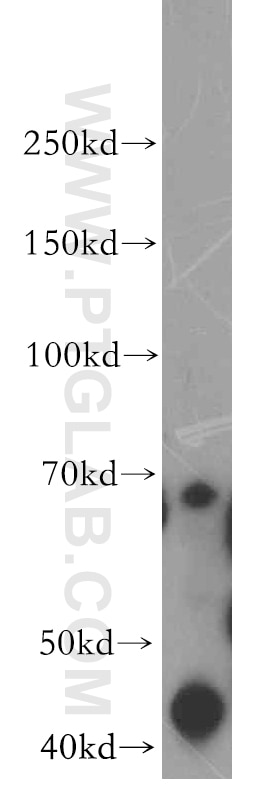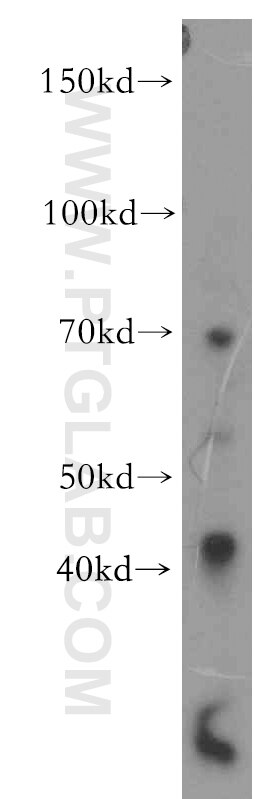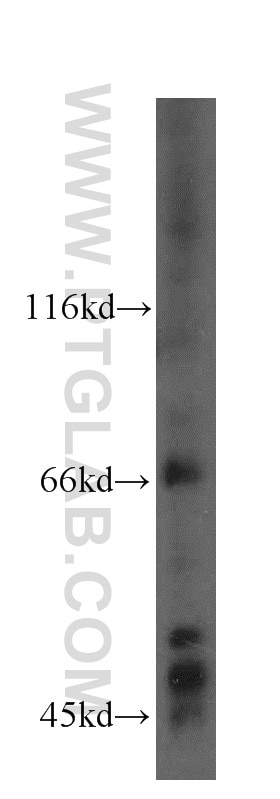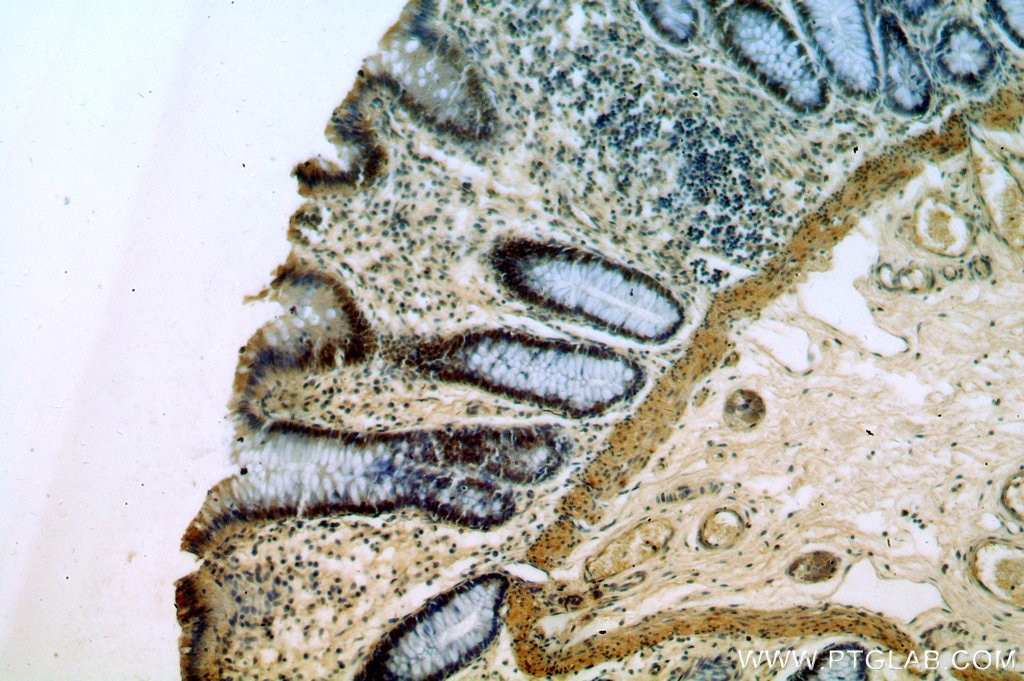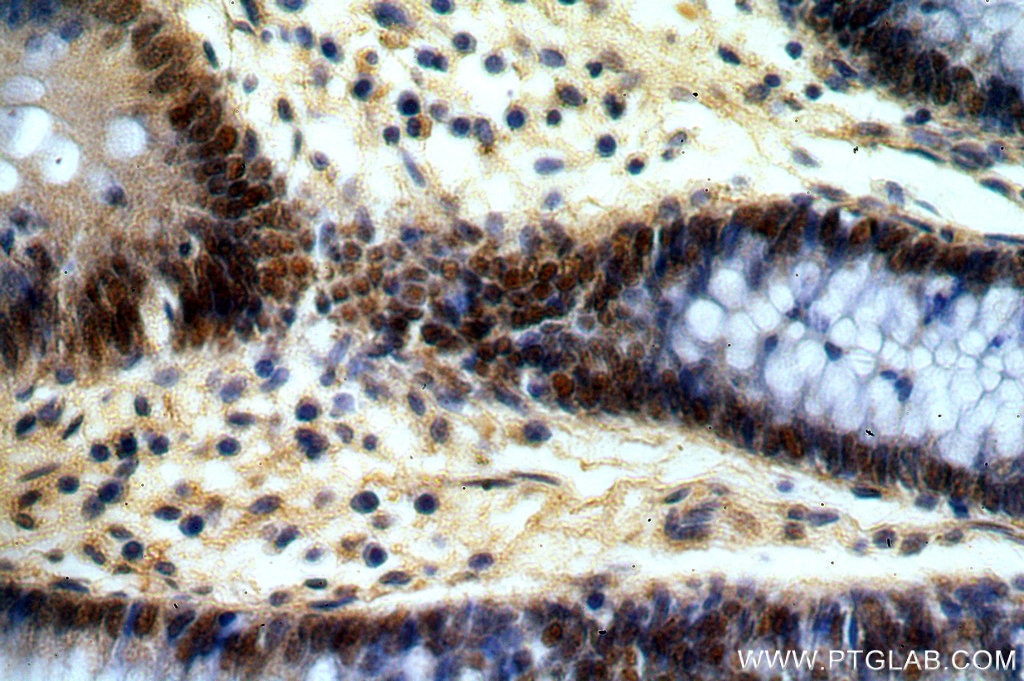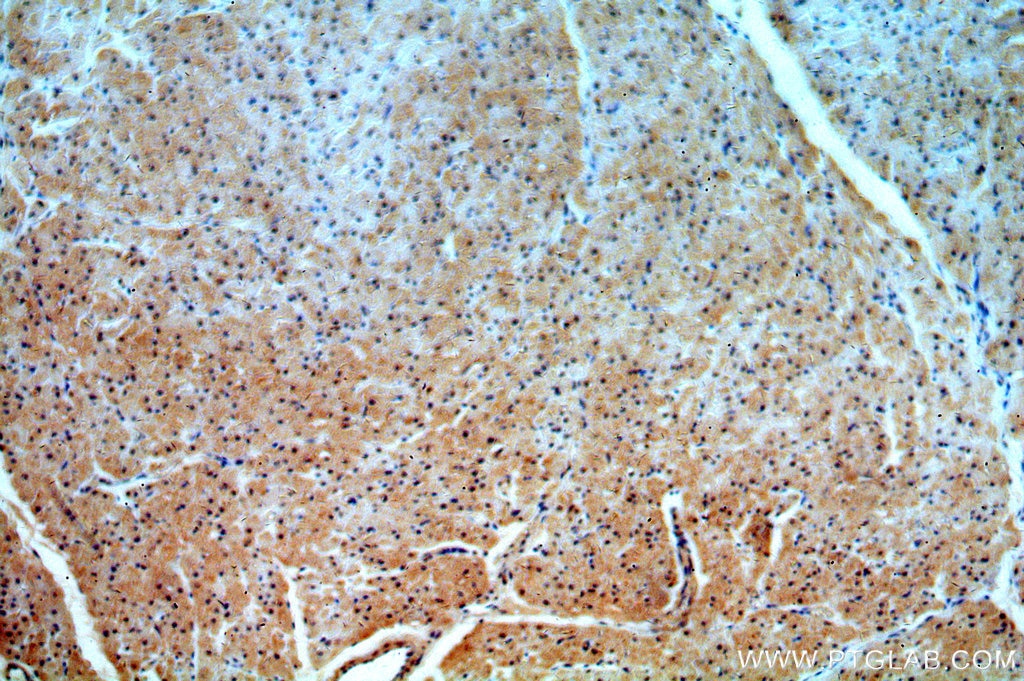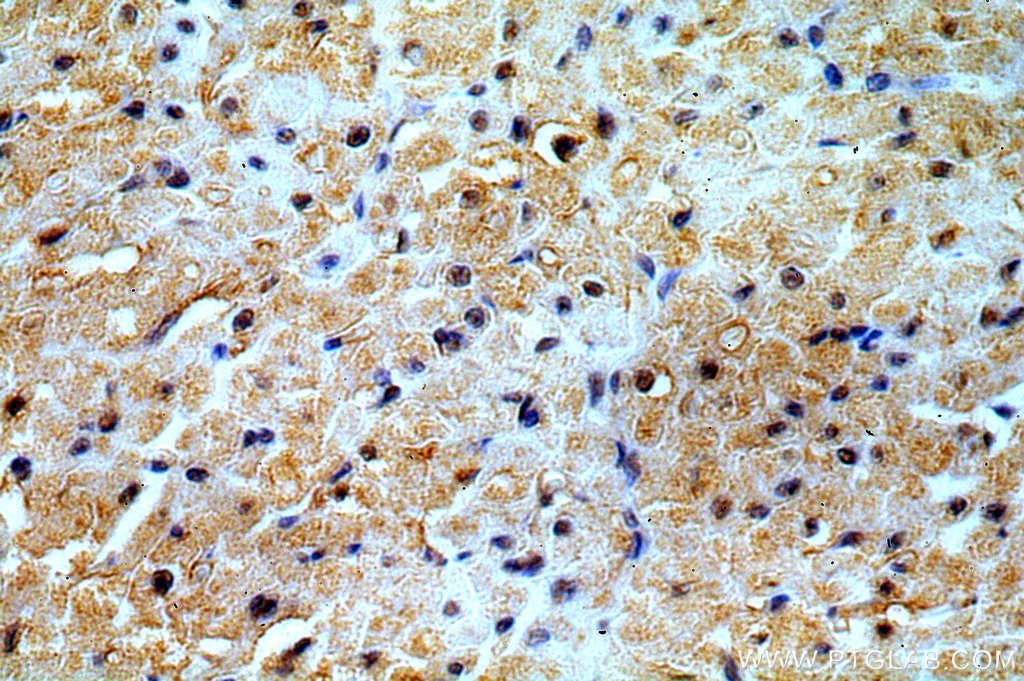Tested Applications
| Positive WB detected in | Jurkat cells, HeLa cells |
| Positive IHC detected in | human colon tissue, human heart tissue Note: suggested antigen retrieval with TE buffer pH 9.0; (*) Alternatively, antigen retrieval may be performed with citrate buffer pH 6.0 |
Recommended dilution
| Application | Dilution |
|---|---|
| Western Blot (WB) | WB : 1:500-1:2000 |
| Immunohistochemistry (IHC) | IHC : 1:20-1:200 |
| It is recommended that this reagent should be titrated in each testing system to obtain optimal results. | |
| Sample-dependent, Check data in validation data gallery. | |
Product Information
19098-1-AP targets PRICKLE3 in WB, IHC, ELISA applications and shows reactivity with human, mouse, rat samples.
| Tested Reactivity | human, mouse, rat |
| Host / Isotype | Rabbit / IgG |
| Class | Polyclonal |
| Type | Antibody |
| Immunogen | PRICKLE3 fusion protein Ag13632 Predict reactive species |
| Full Name | prickle homolog 3 (Drosophila) |
| Calculated Molecular Weight | 69 kDa |
| Observed Molecular Weight | 69 kDa |
| GenBank Accession Number | BC016856 |
| Gene Symbol | PRICKLE3 |
| Gene ID (NCBI) | 4007 |
| RRID | AB_10644341 |
| Conjugate | Unconjugated |
| Form | Liquid |
| Purification Method | Antigen affinity purification |
| UNIPROT ID | O43900 |
| Storage Buffer | PBS with 0.02% sodium azide and 50% glycerol , pH 7.3 |
| Storage Conditions | Store at -20°C. Stable for one year after shipment. Aliquoting is unnecessary for -20oC storage. 20ul sizes contain 0.1% BSA. |
Protocols
| Product Specific Protocols | |
|---|---|
| WB protocol for PRICKLE3 antibody 19098-1-AP | Download protocol |
| IHC protocol for PRICKLE3 antibody 19098-1-AP | Download protocol |
| Standard Protocols | |
|---|---|
| Click here to view our Standard Protocols |
